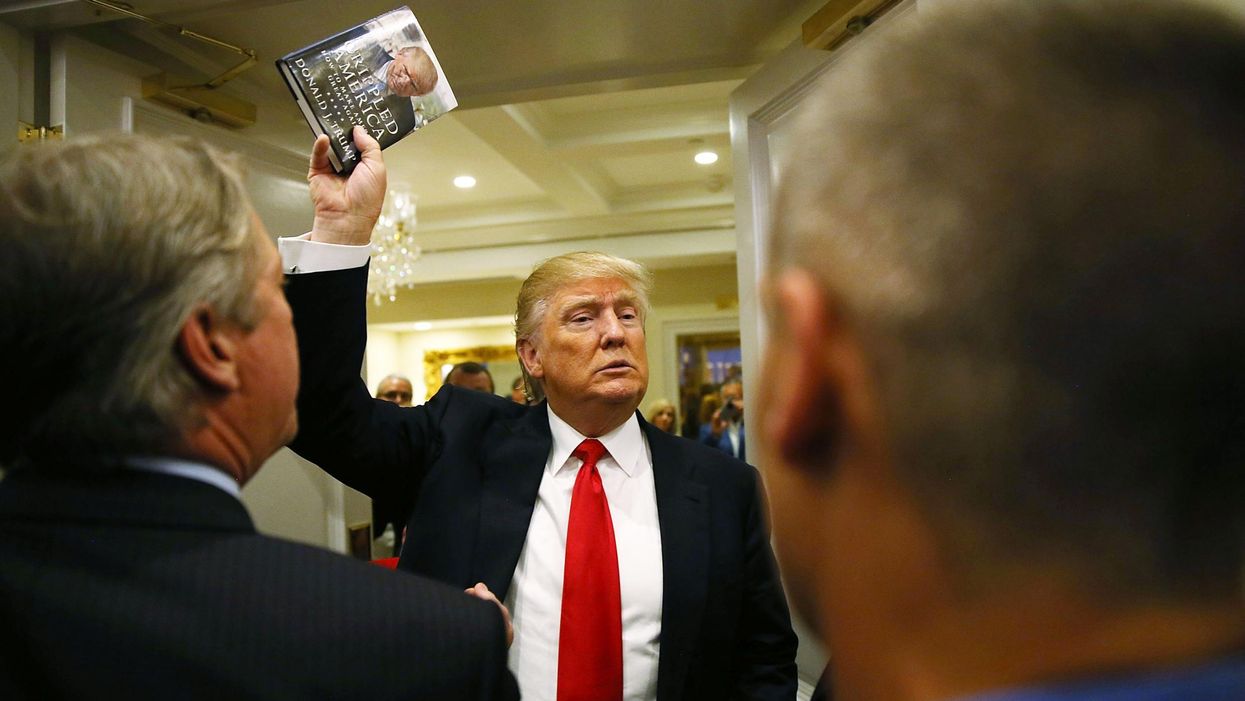
Amidst increasing tension between the media and the Trump administration, sales of George Orwell's 1984 continue to skyrocket.
We couldn't possibly think why.
Although if we were to guess, it might have something to do with senior Trump adviser Kellyanne Conway defending Sean Spicer's lies as "alternative facts".
According to CNN's Reliable Sources, Washington Post reporter Karen Tumulty says "alternative facts" is in fact an Orwellian phrase.
One is also reminded of 'doublethink', a key concept in the totalitarian regime of Orwell's dystopian future.
Simply put, doublethink is the ability to consider two completely opposing facts or views, and believe both simultaneously to be true.
And while the tragic tale of Winston Smith's disillusionment, rebellion and ultimate capitulation remains a bastion of the 'authoritarianism' genre, it's not the only one.
Here are the seven other outstanding novels that explore themes of authoritarian regimes, and that chime uncomfortably with the daily Trump digest...
1. Brave New World, Aldous Huxley (1932)
You'll forgive us if we begin with the obvious, but the book is so often compared to 1984 that it would be rude not to.
In Huxley's imaginings of the year 2540, a strictly segregated society is enslaved by Fordism, consumerism, the pursuit of pleasure and an antidepressant called 'soma'.
But unlike 1984, the population are happy in their controlled homogeneity, where freedom is to be feared and individuality is threateningly savage.
Unnervingly reminiscent of Huxley's 'negative utopia': Trump's insistence on returning America to unspecified 'greatness', emphasis on everyday workman production, and desire to control the press.
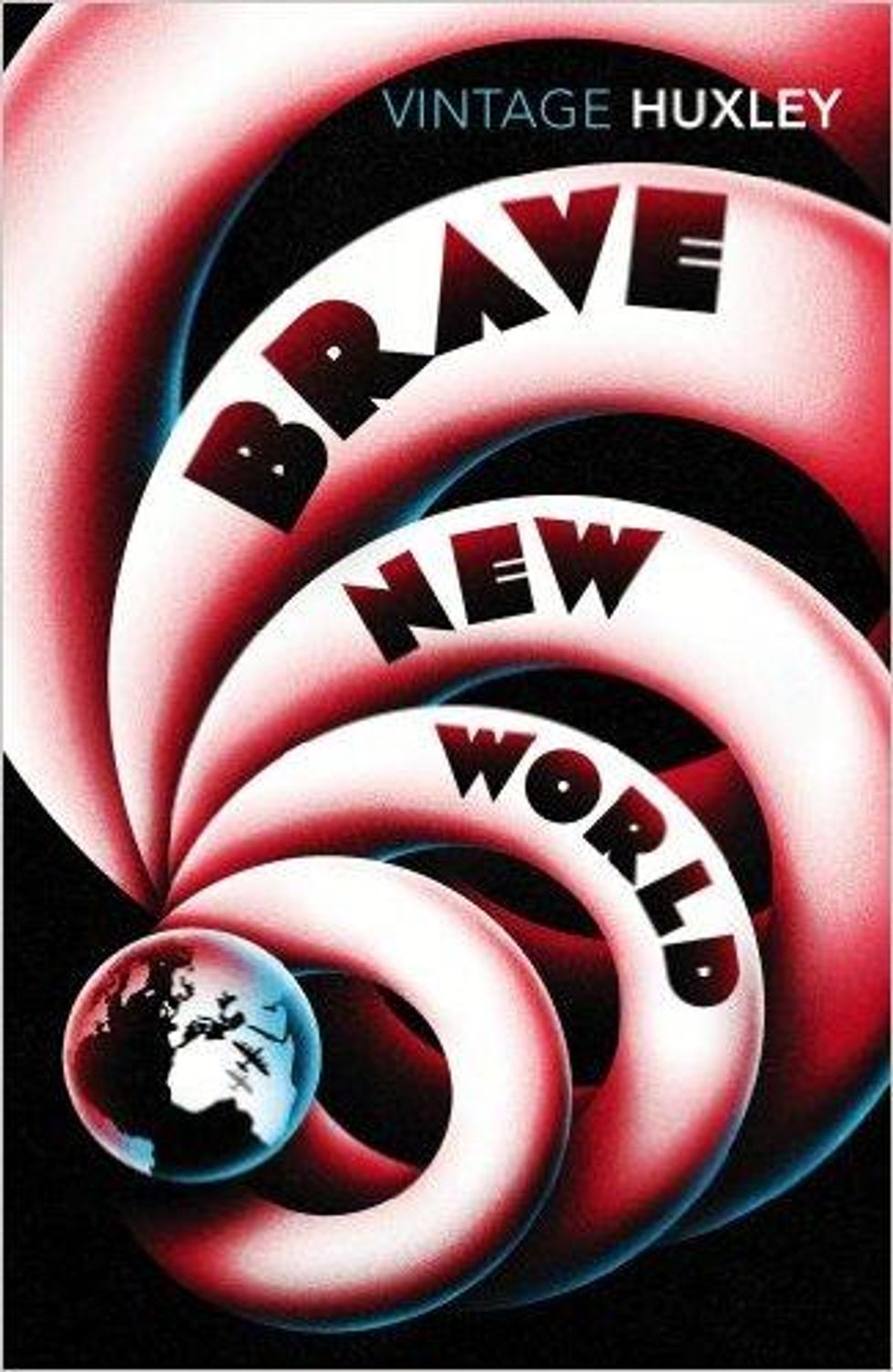
2. We, Yevgeny Zamyatin (1924)
Said to have inspired 1984, this Russian dystopian novel takes place in a future following a 'Two Hundred Years' War' over an unnamed substance, which has wiped out all but 0.2 per cent of the population.
A totalitarian 'One State', comprised of glass and mass surveillance, controls the entire world. Each citizen is referred to by a number and their lives are controlled down to the hour.
A giant 'Green Wall' separates the citizens from the post-apocalyptic yet primitive outside. A sad resemblance to Trump's plans for a wall between the U.S. and Mexico.
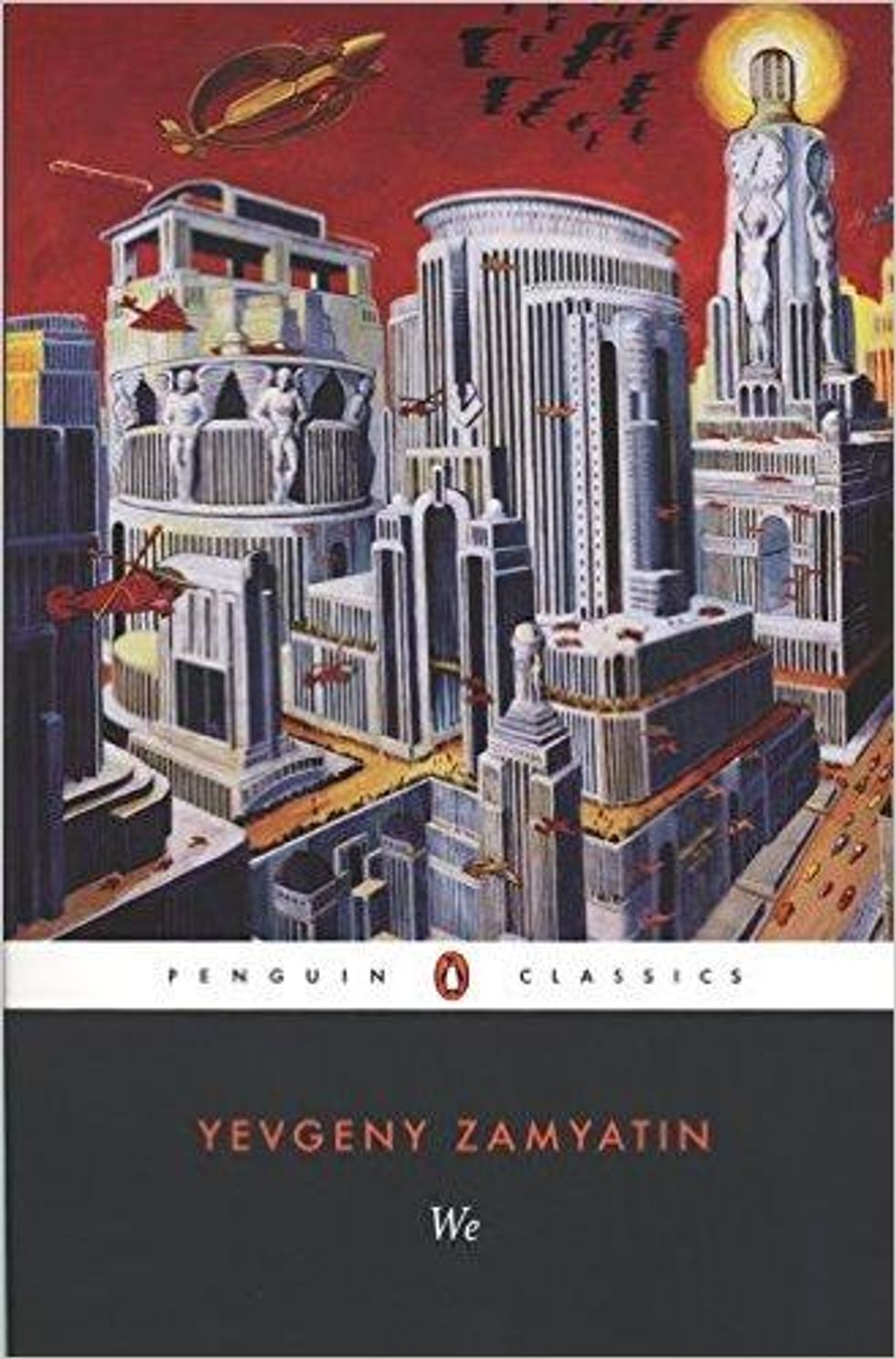
3. Lord of the Flies, William Golding (1954)
A group of boys stranded on an island establish a 'democratic' society, which soon descends into sadistic feral chaos.
Tension between the individual and the group, the corrupting nature of power and the fundamental flaws in social democracy are all explored. Sound familiar?
In particular, a near-obsessive focus on a 'common enemy' or threat ('The Beast') as a means to control the population is a technique beloved of the demagogue. And the Donald.
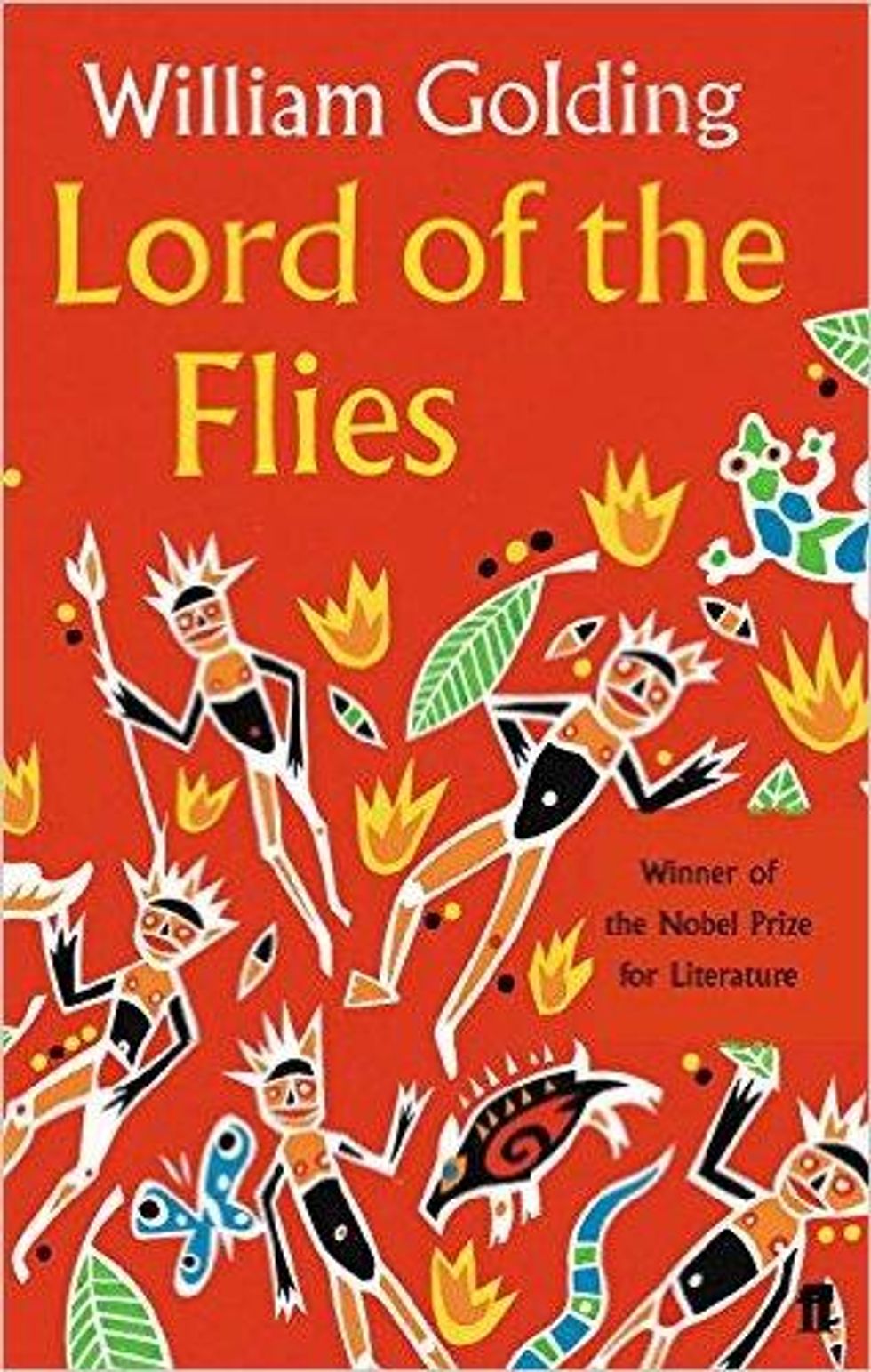
4. Fahrenheit 451, Ray Bradbury (1953)
The title refers to the temperature at which books burn in this imagined future American society, where literature is banned as the source of all discord.
Book burning, the ultimate fascist symbol, is used as an allegory to explore themes of censorship, enslavement and political repression.
As the Trump administration continues its war with the media, discrediting conflicting reports as 'fake news' and threatening to silence the press, we can only hope that book burning isn't to follow.
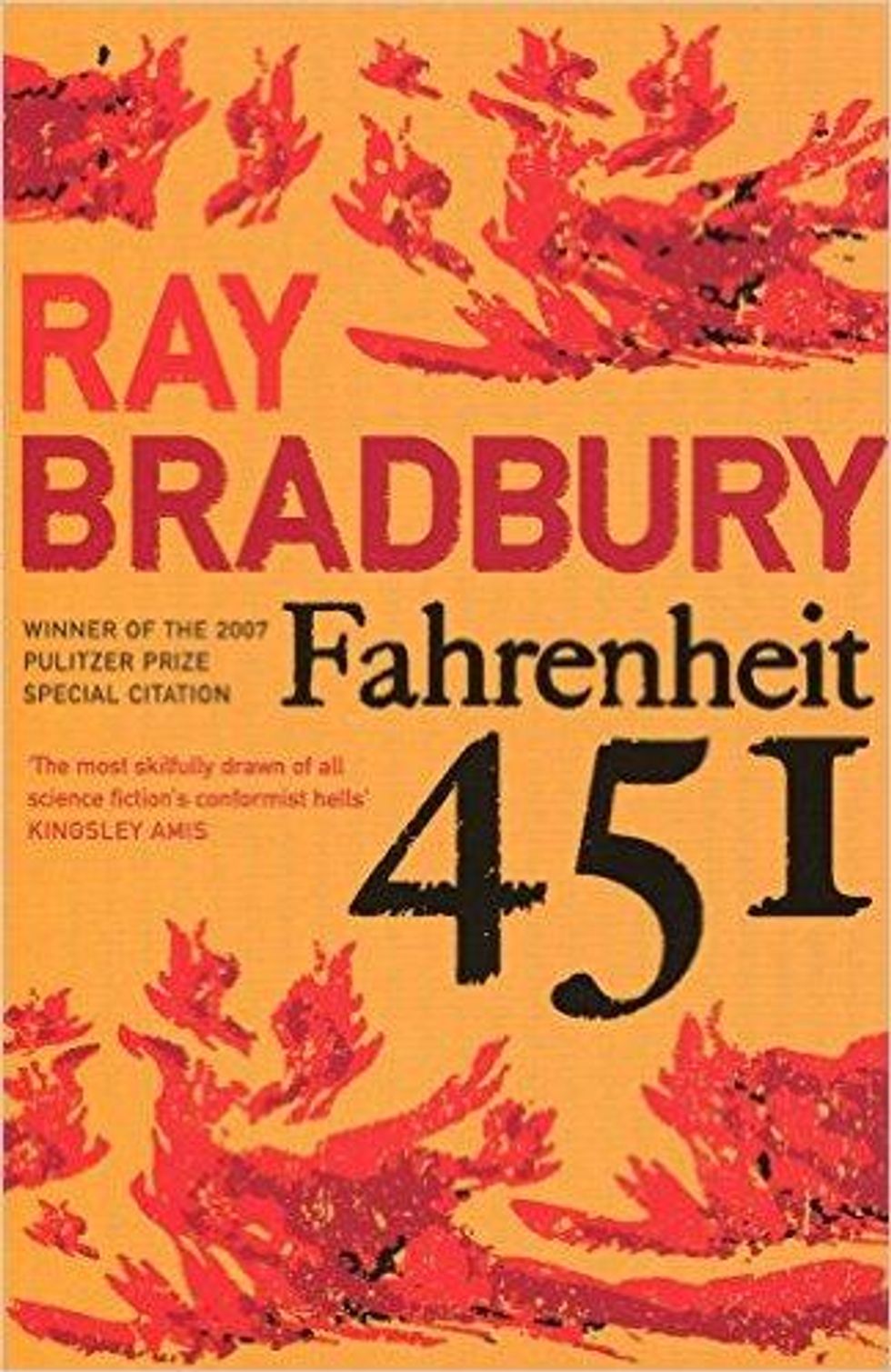
5. The Handmaid's Tale, Margaret Atwood (1985)
Set in the indeterminate future following the collapse of America, this 'speculative fiction' takes place in the authoritarian military dictatorship of Gilead, led by a movement of white Christian fundamentalists.
Human rights are limited and female autonomy is all but destroyed. They are effectively chattels used for reproductive purposes, abortion is the highest of crimes and sterile women are 'unwomen'.
With Trump's new 'gag rule' on abortion, his war on women's reproductive rights has gone global. And that's to say nothing of his dangerously misogynistic rhetoric or sexually aggressive behaviour.
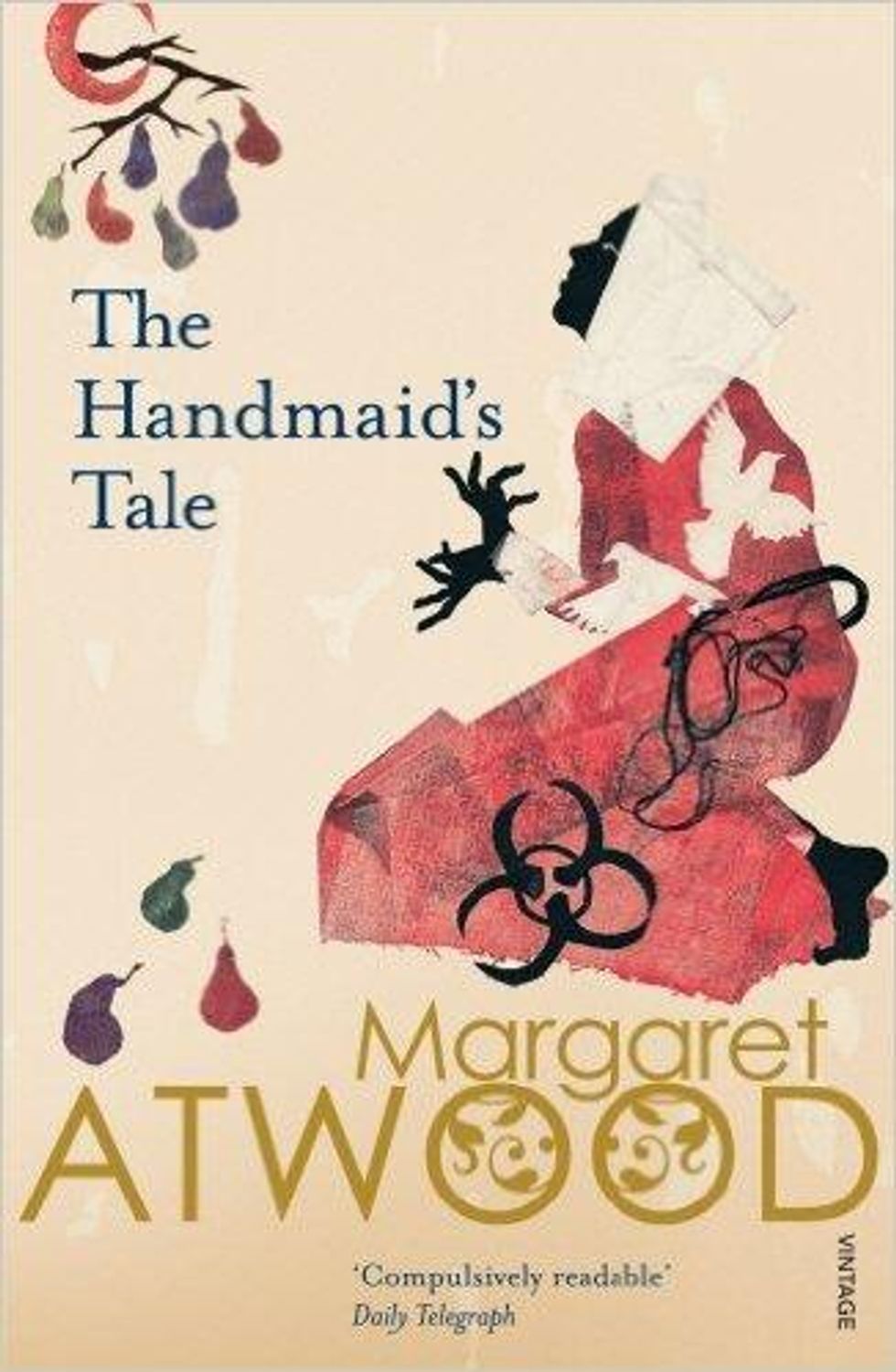
6. It Can't Happen Here, Sinclair Lewis (1935)
Published against a backdrop of the rise of fascism in Europe, this semi-satirical novel imagines that a politician called Berzelius "Buzz" Windrip defeats Franklin Roosevelt and becomes President.
This Hitler-like demagogue, elected on the back of rabid populist patriotism and promises of drastic economic improvement, is opposed by a journalist and an underground rebellion which helps dissidents escape to Canada.
The parallels really write themselves. And the heartbreaking irony of the title should serve as a warning to all.
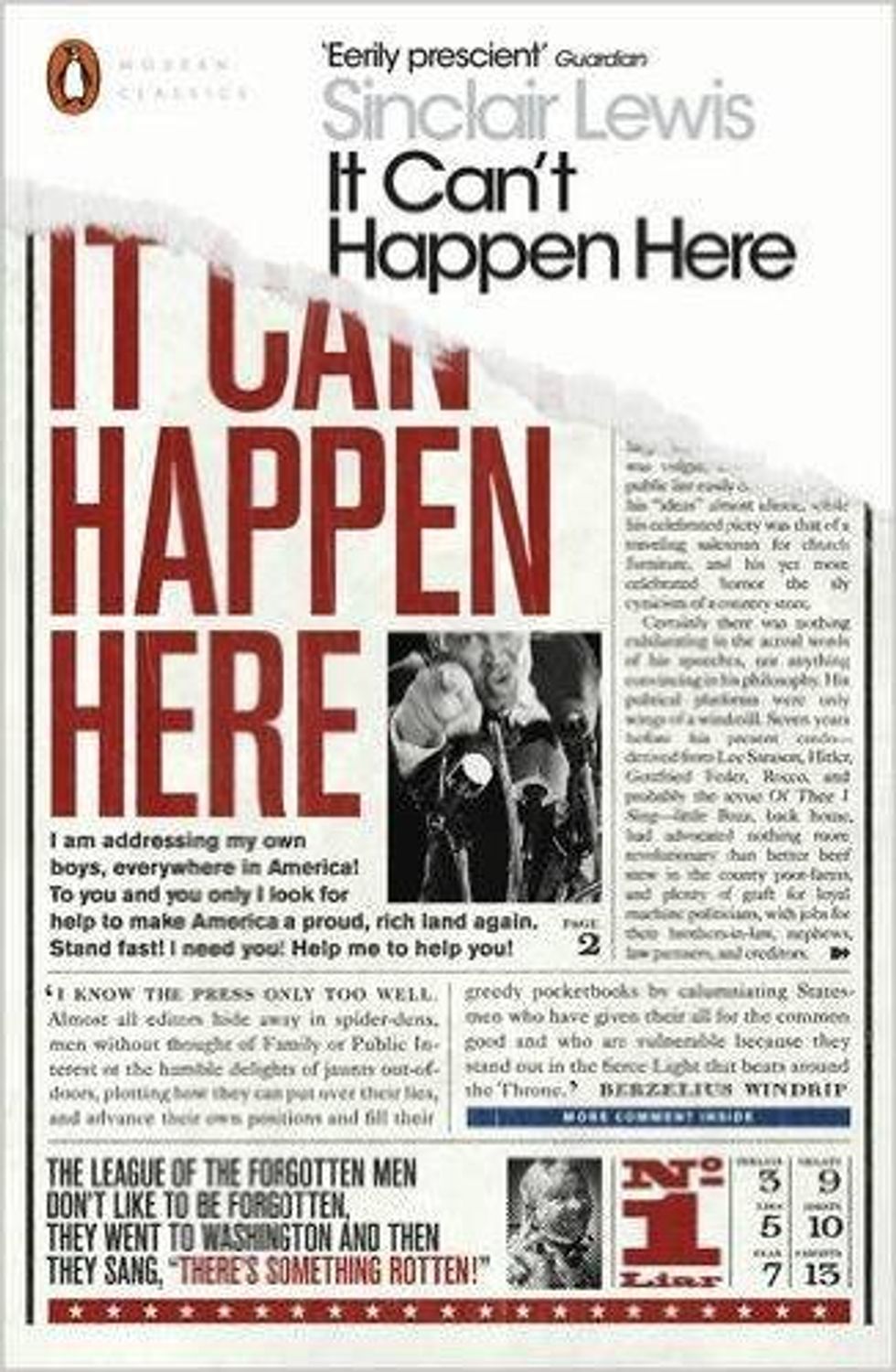
7. Children of Men, P. D. James (1992)
No children have been born for decades in this imagined future England; society is threatened with mass extinction.
Democracy has been abolished, society is ruled by a tyrant, and public hatred against 'fugees' who are fleeing chaos from other countries is whipped into a xenophobic frenzy.
One is reminded of Trump's anti-immigrant rhetoric, and disconcerting habit of conflating Syrian refugees with fundamentalist Islamic terrorists.
The most painful irony: Trump signed an executive order banning Syrian refugees and Muslim immigrants from entering America.
On International Holocaust Remembrance Day.
More: 35 books that will change how you see the world
More: Steve Bannon can't handle the media's reporting of the White House - and the media knows it













